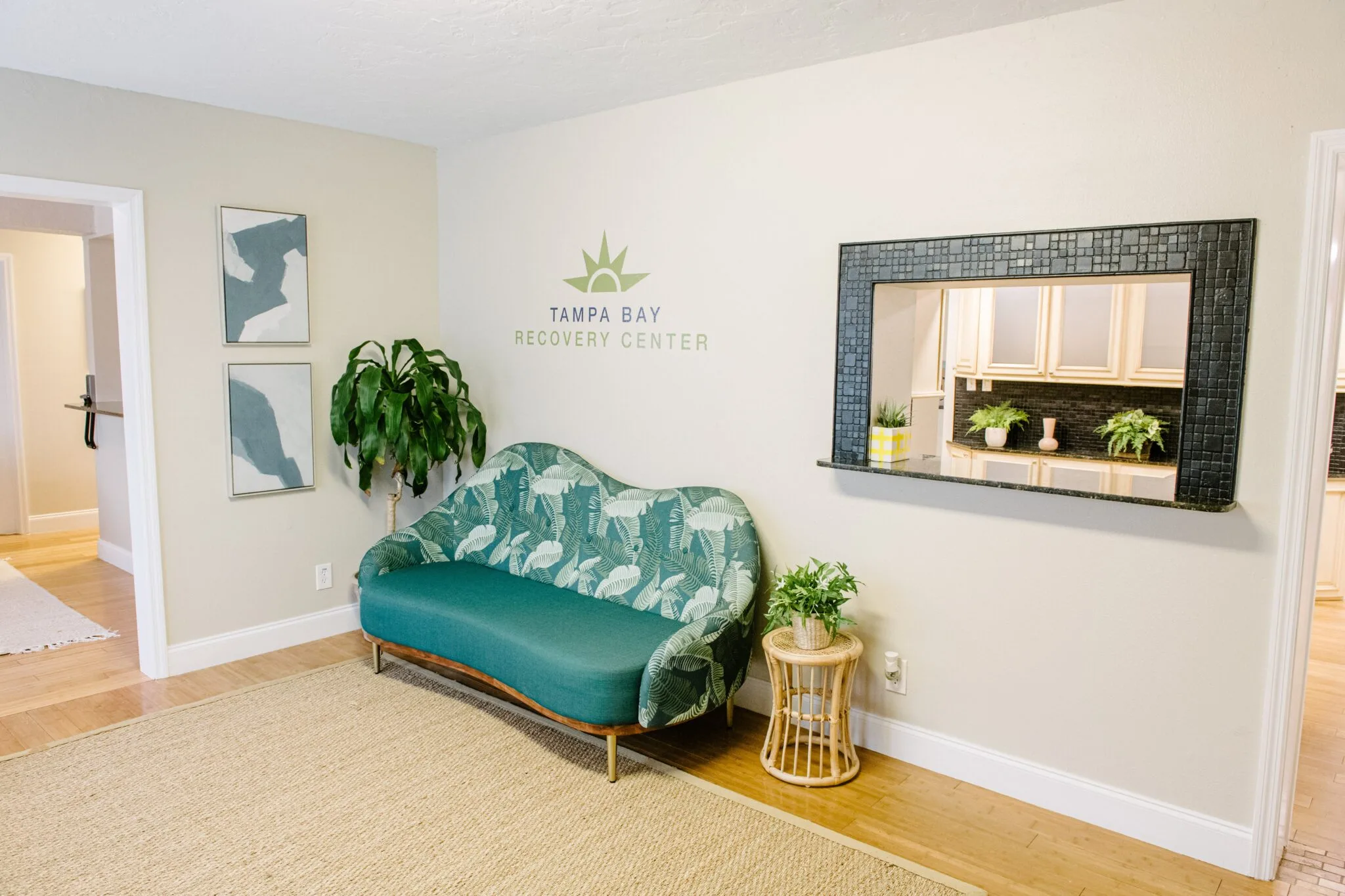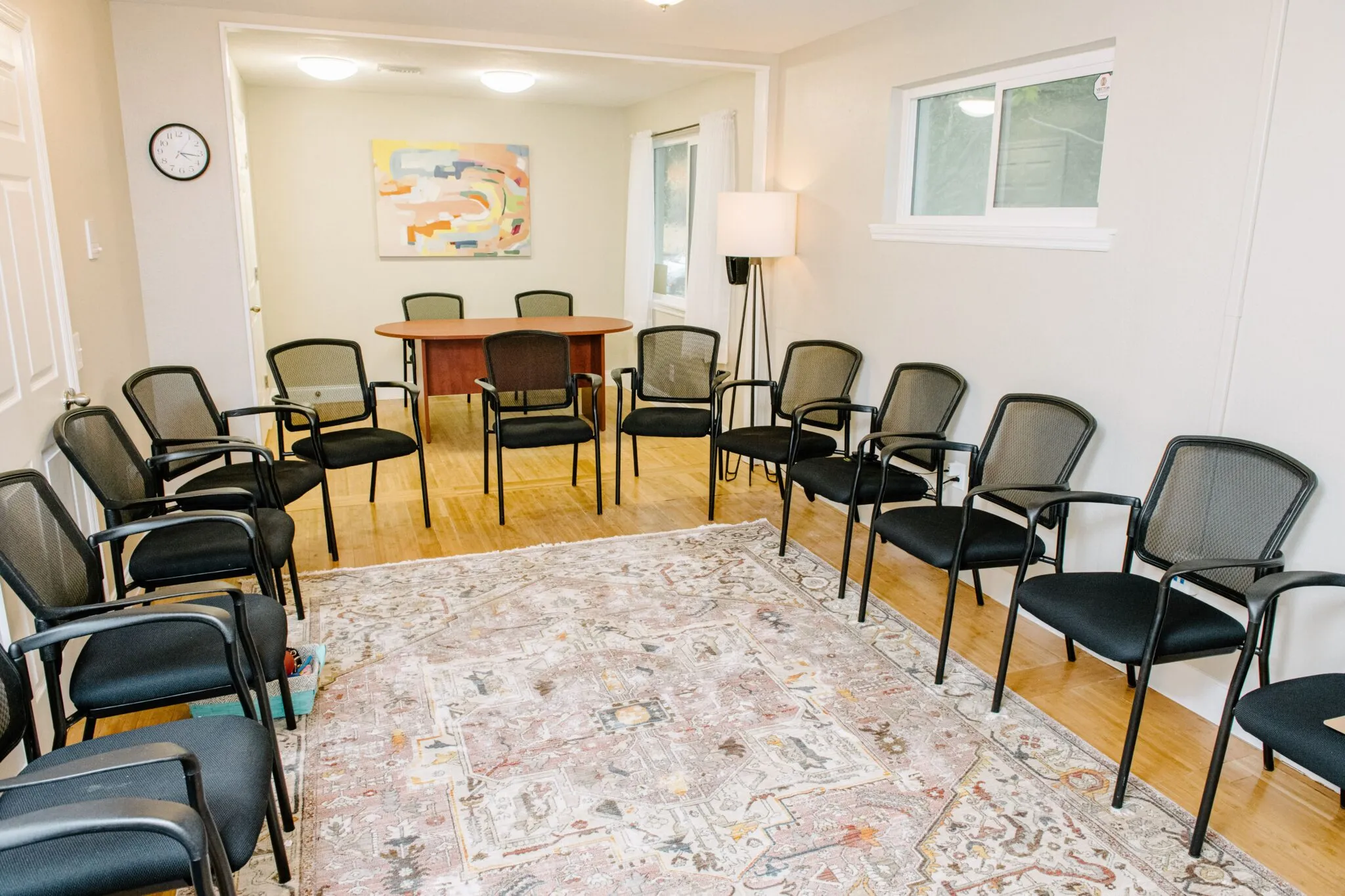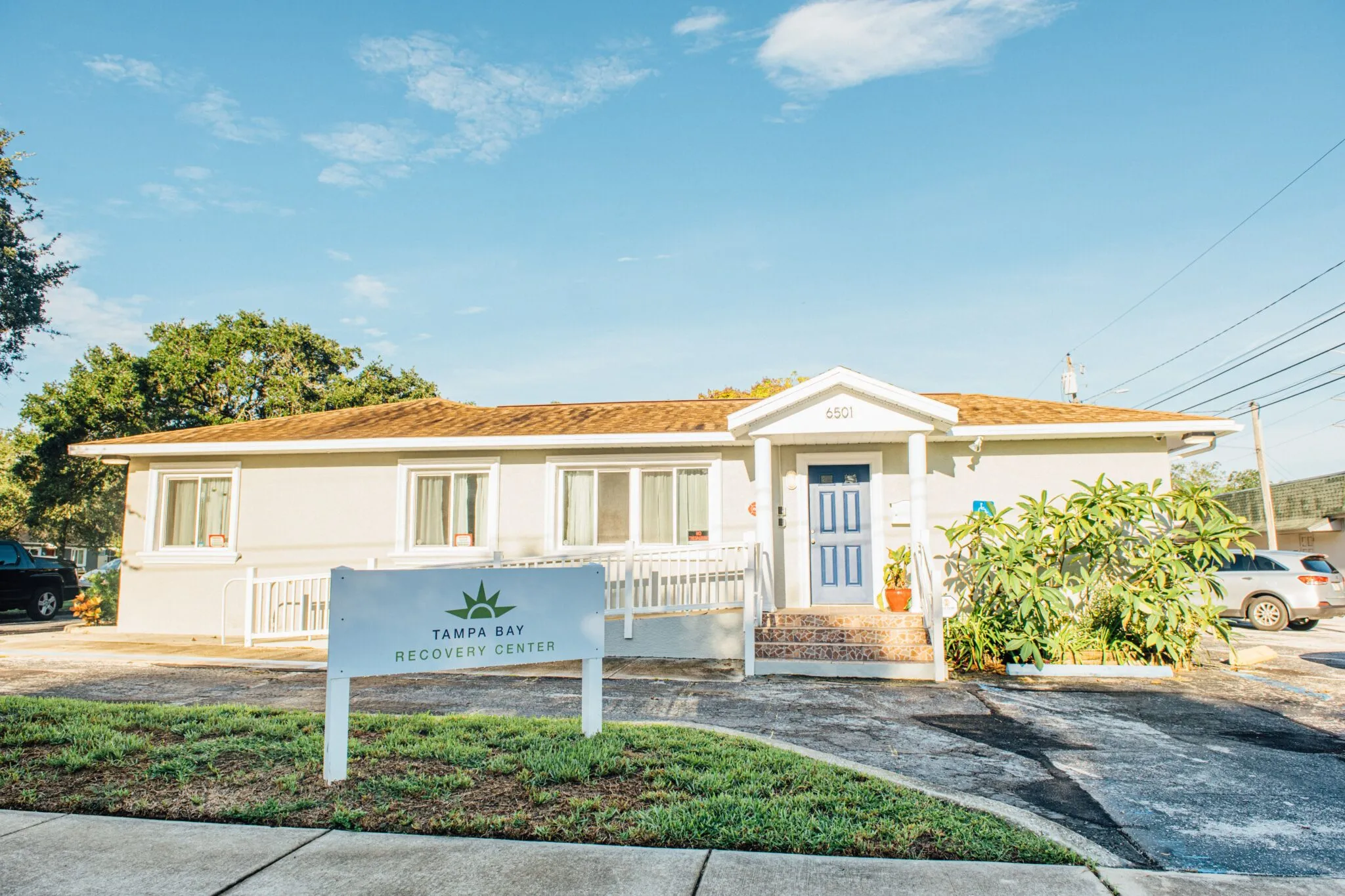
Addiction Treatment in Tampa
At Tampa Bay Recovery Center, our comprehensive approach to addiction treatment in Tampa combines medical expertise, therapeutic intervention, and compassionate care to help individuals overcome substance use disorders and behavioral addictions.
Whether you’re struggling with addiction yourself or watching a loved one battle this disease, understanding the nature of addiction and available treatment options is the first step toward recovery.
If you or a love one are struggling with substance use or mental health disorders, call us now at 813-733-7604. Our rehab programs in St. Petersburg and Tampa can help those struggling put their health first.
What is Addiction?
Addiction is a chronic, relapsing brain disorder characterized by compulsive drug seeking and use despite harmful consequences. It’s recognized by medical professionals as a disease that fundamentally changes brain structure and function, affecting areas responsible for reward, motivation, memory, and decision-making.
When someone develops an addiction, their brain chemistry becomes altered in ways that make it extremely difficult to stop using substances or engaging in addictive behaviors, even when they desperately want to quit.
This isn’t a matter of willpower or moral failing. Addiction creates powerful physical and psychological dependencies that require professional treatment to overcome safely and effectively.
The disease model of addiction helps us understand why people can’t simply “choose” to stop using substances.
The brain changes caused by addiction create intense cravings, impaired judgment, and a compulsive drive to continue the addictive behavior despite negative consequences to health, relationships, work, and overall quality of life.
What Are The Different Types of Addiction?
Addiction generally falls into two main categories: substance addictions and behavioral addictions.
Each type affects the brain’s reward system in similar ways, creating patterns of compulsive behavior that become increasingly difficult to control without professional intervention.
Substance Addictions
Substance Addictions involve the compulsive use of drugs or alcohol despite harmful consequences. These substances directly affect brain chemistry by flooding the reward system with dopamine, creating powerful associations between the substance and feelings of pleasure or relief.
Behavioral Addictions
Behavioral Addictions involve compulsive engagement in certain activities or behaviors that trigger the brain’s reward system. While these don’t involve ingesting substances, they create similar neurological patterns and can be equally destructive to a person’s life and well-being.
Both types of addiction share common characteristics including loss of control, continued use despite negative consequences, tolerance (needing more to achieve the same effect), withdrawal symptoms when stopping, and unsuccessful attempts to quit or cut back.
What Causes Addiction?
Addiction develops through a complex interplay of multiple factors, and no single cause can explain why some people develop addictions while others don’t.
Genetic Factors
Genetic Factors play a significant role, with research suggesting that genetics account for approximately 40-60% of addiction risk. People with family histories of addiction are at higher risk, though having genetic predisposition doesn’t guarantee someone will develop an addiction.
Environmental Factors
Environmental Factors include exposure to substances at an early age, peer pressure, trauma, abuse, neglect, and high-stress living conditions. Growing up in environments where substance use is normalized or where healthy coping mechanisms aren’t modeled increases addiction risk.
Psychological Factors
Psychological Factors such as mental health disorders, personality traits, and coping styles significantly influence addiction development. People with conditions like depression, anxiety, PTSD, or ADHD are at higher risk for developing substance use disorders.
Social Factors
Social Factors including socioeconomic status, cultural attitudes toward substance use, availability of substances, and social support systems all contribute to addiction risk. Isolation, relationship problems, and lack of meaningful connections can increase vulnerability.
Developmental Factors
Developmental Factors are particularly important, as the adolescent brain is still developing and more susceptible to addiction. Early exposure to substances during critical developmental periods can have lasting effects on brain structure and function.
Take Back Control:
Contact Us Now
Addiction and mental health disorder effects the lives of millions of Americans each year. Contact Creekside Recovery Group today to get the help you deserve.
TOUR
Tour Our Addiction Treatment in Tampa Bay
What Are Addictive Substances?
Addictive substances encompass a wide range of legal and illegal drugs that have the potential to create physical and psychological dependence. These substances affect the brain’s reward system and can lead to tolerance, withdrawal symptoms, and compulsive use patterns.
- Alcohol is one of the most commonly abused substances and is legal for adults over 21. Despite its legal status, alcohol addiction affects millions of Americans and can cause severe health complications including liver disease, heart problems, and increased accident risk.
- Prescription Medications including opioid pain relievers, benzodiazepines for anxiety, and stimulants for ADHD can be highly addictive when misused. Even when taken as prescribed, some individuals may develop dependence and require professional help to discontinue use safely.
- Illegal Drugs such as cocaine, heroin, methamphetamine, and synthetic substances carry high addiction potential and significant legal and health risks. These substances are often unpredictable in strength and purity, making overdose a constant danger.
- Nicotine found in cigarettes, vaping products, and other tobacco products is highly addictive and one of the leading causes of preventable death worldwide. Nicotine addiction often develops quickly and can be challenging to overcome without support.
- Cannabis while legal in many states for medical and recreational use, including Florida, can still lead to dependence and addiction, particularly with high-THC products.
Ready to Escape Addiction? Let’s get Started
Tampa Bay Recovery Center is a premier leader in the provision of addiction treatment services. If you or someone you love is in need of professional care to address a substance use disorder, reach out to us right now at (813) 733-8774 to speak with an admissions specialist who can get you started on the road to recovery.
What Are Different Kinds of Substance Use Disorders
Substance use disorders are classified based on the specific substance involved and the severity of symptoms.
The Diagnostic and Statistical Manual of Mental Disorders (DSM-5) provides standardized criteria for diagnosing these conditions, helping clinicians develop appropriate treatment plans.
Alcohol Use Disorder
Alcohol use disorder ranges from mild to severe and is characterized by an inability to control drinking despite negative consequences. Symptoms include drinking more than intended, unsuccessful attempts to cut back, spending excessive time obtaining or recovering from alcohol use, cravings, and continued use despite relationship, work, or health problems.
Severe alcohol use disorder can include tolerance, withdrawal symptoms, and life-threatening complications.
Opioid Use Disorder
This includes addiction to prescription pain medications like oxycodone, hydrocodone, and fentanyl, as well as illegal opioids like heroin. Opioid use disorder is particularly dangerous due to high overdose risk and severe withdrawal symptoms. Treatment often requires medication-assisted treatment (MAT) combined with counseling and behavioral therapies.
Stimulant Use Disorder
Encompasses addiction to substances like cocaine, methamphetamine, and prescription stimulants such as Adderall or Ritalin. These substances affect dopamine levels in the brain and can cause intense cravings, paranoia, and cardiovascular complications. Treatment focuses on behavioral interventions and managing underlying mental health conditions.
Cannabis Use Disorder
While often perceived as less serious, cannabis use disorder can significantly impact daily functioning, motivation, and mental health. Symptoms include tolerance, withdrawal symptoms like irritability and sleep disturbances, and continued use despite problems with work, school, or relationships.
Sedative, Hypnotic, or Anxiolytic Use Disorder
This category includes addiction to benzodiazepines like Xanax, Valium, and Ativan, as well as sleep medications. These substances can be particularly dangerous when combined with alcohol and require careful medical supervision during detox due to potentially life-threatening withdrawal symptoms.
Hallucinogen Use Disorder
Though less common, some individuals develop problematic use patterns with substances like LSD, PCP, or psilocybin mushrooms. Treatment typically focuses on addressing underlying psychological issues and developing healthy coping mechanisms.
Inhalant Use Disorder
Involves the abuse of household products like paint thinners, glue, or aerosols to achieve intoxication. This form of substance abuse is particularly dangerous and can cause immediate death or permanent organ damage.
Overcome Addiction with evidence-based, expert care.
What Are The Symptoms of Substance Use Disorders?
Symptoms of substance use disorder can be physical, behavioral, psychological, and social, often occurring in combination and worsening over time without treatment.
Physical Symptoms
Physical Symptoms may include:
- Changes in appetite and weight
- Bloodshot eyes
- Dilated or constricted pupils
- Unusual odors on breath or clothing
- Deterioration in physical appearance and grooming
- Tremors or slurred speech
- Frequent illness or fatigue
Behavioral Symptoms
Behavioral Symptoms often involve:
- Secretive behavior
- Lying about substance use
- Missing work or school
- Abandoning activities once enjoyed
- Risky behaviors like driving under the influence
- Stealing money or items to obtain substances
- Dramatic changes in social circles.
Psychological Symptoms
- Mood swings
- Increased agitation or irritability
- Anxiety or paranoia
- Depression
- Lack of motivation
- Memory problems
- Confusion
- Inability to concentrate on daily tasks
Social Symptoms
Social Symptoms typically manifest as relationship problems with family and friends, isolation from loved ones, legal troubles, financial difficulties, poor performance at work or school, and neglecting responsibilities and obligations.
Tolerance and Withdrawal
Tolerance and Withdrawal are hallmark symptoms where individuals need increasing amounts of substances to achieve the same effect and experience uncomfortable physical and psychological symptoms when attempting to stop or reduce use.
Addiction Treatment in Tampa: How Are Substance Use Disorders Treated?
At Tampa Bay Recovery Center, we provide comprehensive, evidence-based addiction treatment for substance use disorders tailored to each individual’s unique needs and circumstances.
Our continuum of care ensures that patients receive appropriate levels of support throughout their recovery journey.
Detox
Medical detox is often the first step in addiction treatment, providing safe, medically supervised withdrawal from substances. Our medical team monitors vital signs, manages withdrawal symptoms with appropriate medications, and ensures patient safety during this critical phase. Detox typically lasts 3-7 days but can vary depending on the substance and individual factors.
Inpatient Rehab
Inpatient rehab provides 24-hour medical and therapeutic support in a structured, substance-free environment. Patients live at our facility while receiving intensive individual and group therapy, medical care, psychiatric services if needed, and education about addiction and recovery. Inpatient programs typically last 30, 60, or 90 days depending on individual needs.
Partial Hospitalization Program (PHP)
Partial Hospitalization Program (PHP) offers intensive addiction treatment during the day while allowing patients to return home in the evenings. This level of care typically involves 6-8 hours of programming per day, 5-7 days per week, and includes individual therapy, group counseling, family therapy, and medication management when appropriate.
Intensive Outpatient Program (IOP)
Intensive Outpatient Program (IOP) provides structured treatment while allowing individuals to maintain work, school, or family obligations. IOP typically involves 3-4 hours of programming, 3-4 days per week, focusing on relapse prevention, coping skills development, and ongoing support.
Outpatient Rehab
Outpatient rehab offers the most flexibility while providing ongoing therapeutic support. Sessions may occur 1-2 times per week and can continue for months or years as needed. This level of care works well for individuals with strong support systems and lower risk of relapse.
Begin Addiction Treatment Today – Serving the Greater Tampa Bay Area
Tampa Bay Recovery Center is proud to serve individuals and families throughout the Tampa Bay region, including Tampa, St. Petersburg, Clearwater, Sarasota, and Bradenton. No matter where you’re located in these communities, compassionate, professional addiction treatment is within reach.
If you or someone you love is struggling with addiction, you don’t have to face this challenge alone. Our experienced team of medical professionals, licensed therapists, and addiction specialists is ready to provide the evidence-based treatment and support you need to achieve lasting recovery.
Why Wait? Help Is Available Now
Our admissions team is available 24/7 to answer your questions, discuss addiction treatment options, verify insurance benefits, and help you understand the next steps. We make the admission process as smooth and stress-free as possible because we know that taking this step requires courage, and we want to honor that bravery.
Visit our admissions page now and see how easy it is to get started.
Call 813-733-8774
Insurance Can Cover Up to 100% of costs
We Accept Most Insurance. Please Note We Are Not Affiliated With Or Endorsed By Insurance Companies.
CONTACT US
We Are Always Here For You
Our compassionate team is ready to assist you—contact us now for confidential support tailored to your needs!









